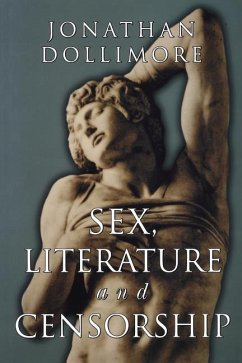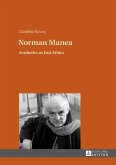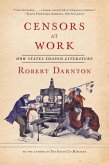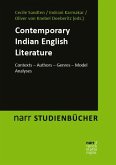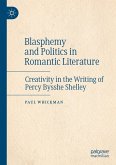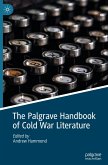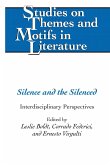Those who love and live by art, tell us that it is the most exalted expression of civilized life. In this provocative new book Jonathan Dollimore argues that, far from confirming humane values, literature more often than not violates them.
He begins with a polemical and witty attack on the spurious radicalism of some fashionable academic theories about desire and sexual dissidence. Dollimore then examines the ways in which the media, literary critics and the state, as well as these literary theorists, all deny or repress the disturbing and dangerous knowledge conveyed by literature.
His own account of the volatile connections between aesthetics, desire, politics and censorship unfolds through topics such as homosexuality, bisexuality, sexual disgust, and the disturbing relations between art and inhumanity, and through brilliant insights into a wide range of authors including Euripides, Shakespeare, Tennyson and Yeats.
Most persistently, this book is about how the experience ofdesire in life and art compromises our most cherished ethical beliefs. If this helps make art irresistible and of indispensable value, it follows too that there are reasonable grounds for wanting to censor it.
This compelling and accessibly written book will be essential reading for students and scholars of literary, gender and cultural studies, and will have a major impact on debates about art, sexuality, censorship and the role of the intellectual.
He begins with a polemical and witty attack on the spurious radicalism of some fashionable academic theories about desire and sexual dissidence. Dollimore then examines the ways in which the media, literary critics and the state, as well as these literary theorists, all deny or repress the disturbing and dangerous knowledge conveyed by literature.
His own account of the volatile connections between aesthetics, desire, politics and censorship unfolds through topics such as homosexuality, bisexuality, sexual disgust, and the disturbing relations between art and inhumanity, and through brilliant insights into a wide range of authors including Euripides, Shakespeare, Tennyson and Yeats.
Most persistently, this book is about how the experience ofdesire in life and art compromises our most cherished ethical beliefs. If this helps make art irresistible and of indispensable value, it follows too that there are reasonable grounds for wanting to censor it.
This compelling and accessibly written book will be essential reading for students and scholars of literary, gender and cultural studies, and will have a major impact on debates about art, sexuality, censorship and the role of the intellectual.
'In his original and exciting new book, Jonathan Dollimoresets out to liberate art from contemporary conservative and radicalagendas, both of which, as he brilliantly shows, weaken the powerof art by their naive faith in its cultural and moral efficacy.Great literature, like the best psychoanalytic theory, argues forthe inevitable conflict between humane values and human desire: ifwe could agree to trust art less we might begin to accord it theseriousness it deserves.' Leo Bersani, University of Californiaat Berkeley
'No one grasps more fully than Jonathan Dollimore thechallenges, evasions and deceptions in the volatile theorizing ofidentity and desire, past and present. His brilliant, theoreticalsynthesis combines with graphic experiential and literary analysisto render Sex, Literature and Censorship never less thanenthralling. Erudite, provocative and delightful to read, what morecould he do for us?' Lynne Segal, author of WhyFeminism?
'Jonathan Dollimore's Sex, Literature andCensorship continues his remarkably resonant inquiry into thedarker, defiant regions of the creative imagination. The ethicalaim of critical thinking, Dollimore provocatively suggests,requires us to intervene in the corporate consensus of the cultureindustry, and to resist the pedagogical etiquette of academia. Heargues that we must explore the daemonic power of those subjectsand objects that offend our tastes and traditions. We applaud andoppose him, following the dialectical destiny of dissidence towhich he has skilfully introduced us.' Homi K. Bhabha, HarvardUniversity
'[A] feverish, political polemic.' Steven Poole, TheGuardian
'Dollimore speaks an important truth when he suggests that someof the most compelling literature, past and present, hinges on thetension between, if not the incompatibility of, "the ethicalconscience and the creative imagination".' TheIndependent
'Looking at the contradictions of identity-based sexual politicsmovements, [Dollimore] examines the ethics of knowledge andpractice that circulate around ideas of danger - dangers to theself, dangerous knowledge - connecting these with questions posedby art as a site of danger in itself.' RadicalPhilosophy
'Sex, Literature, and Censorship is a book worth reading;it says provocative things we will ponder long after setting itdown' Times Literary Supplement
'Biographical and autobiographical anecdote are one of the chiefamusements of this book. Dollimore tells us of his first gayaffair, his subsequent relationship with a woman, his particularsexual preferences. It is calculated to shock, performing thedissidence it preaches. Indeed, if I have criticism of the book, itis that it has nothing to say about the tenderness of sexualdesire, but that probably reveals precisely how unradical i am.'Times Higher Education Supplement
'No one grasps more fully than Jonathan Dollimore thechallenges, evasions and deceptions in the volatile theorizing ofidentity and desire, past and present. His brilliant, theoreticalsynthesis combines with graphic experiential and literary analysisto render Sex, Literature and Censorship never less thanenthralling. Erudite, provocative and delightful to read, what morecould he do for us?' Lynne Segal, author of WhyFeminism?
'Jonathan Dollimore's Sex, Literature andCensorship continues his remarkably resonant inquiry into thedarker, defiant regions of the creative imagination. The ethicalaim of critical thinking, Dollimore provocatively suggests,requires us to intervene in the corporate consensus of the cultureindustry, and to resist the pedagogical etiquette of academia. Heargues that we must explore the daemonic power of those subjectsand objects that offend our tastes and traditions. We applaud andoppose him, following the dialectical destiny of dissidence towhich he has skilfully introduced us.' Homi K. Bhabha, HarvardUniversity
'[A] feverish, political polemic.' Steven Poole, TheGuardian
'Dollimore speaks an important truth when he suggests that someof the most compelling literature, past and present, hinges on thetension between, if not the incompatibility of, "the ethicalconscience and the creative imagination".' TheIndependent
'Looking at the contradictions of identity-based sexual politicsmovements, [Dollimore] examines the ethics of knowledge andpractice that circulate around ideas of danger - dangers to theself, dangerous knowledge - connecting these with questions posedby art as a site of danger in itself.' RadicalPhilosophy
'Sex, Literature, and Censorship is a book worth reading;it says provocative things we will ponder long after setting itdown' Times Literary Supplement
'Biographical and autobiographical anecdote are one of the chiefamusements of this book. Dollimore tells us of his first gayaffair, his subsequent relationship with a woman, his particularsexual preferences. It is calculated to shock, performing thedissidence it preaches. Indeed, if I have criticism of the book, itis that it has nothing to say about the tenderness of sexualdesire, but that probably reveals precisely how unradical i am.'Times Higher Education Supplement

